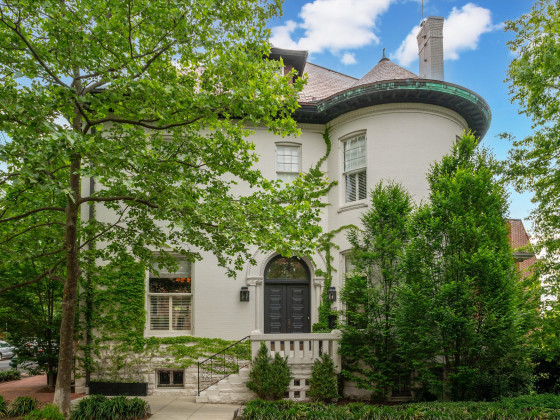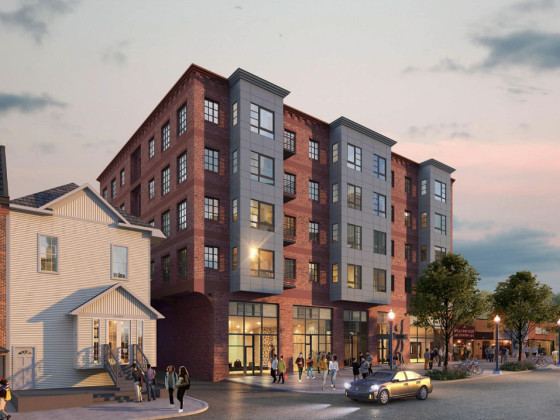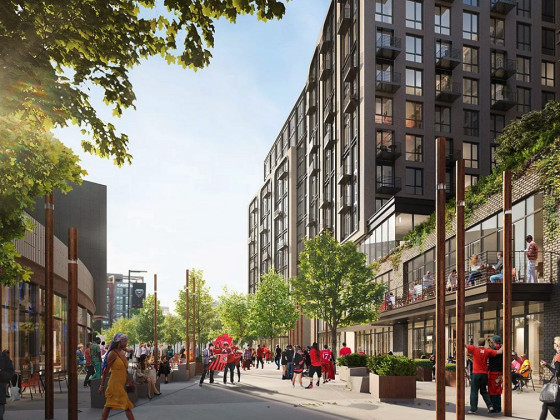 DC Council Approves Comprehensive Plan Amendments
DC Council Approves Comprehensive Plan Amendments
✉️ Want to forward this article? Click here.
On Tuesday afternoon, the DC Council voted to approve a slate of amendments to the city's Comprehensive Plan that strengthen language around racial equity and encourage production of deeply affordable housing.
As a document that serves as a macro-level guide for matters like planning, land use, and development in DC, the current years-long effort to revise the city's Comprehensive Plan has been the subject of fierce debate and criticism. After the proposed amended Comp Plan got a tepid reception last month, both from DC Councilmembers and the city's new Council Office of Racial Equity (CORE), the Plan is showing signs of progress.
story continues below
loading...story continues above
Some of the more interesting and impactful amendments that emerged since first reading include:
- A section that acknowledges the racially exclusionary impact of terms like "character", clarifying that they shouldn't be interpreted in reference to the characteristics of people;
- Additional notes around the disparate racial impact of the concentration of industrial-zoned (PDR) land in certain areas;
- Explanation of how the racial disparity in median incomes in the city creates a disparate impact when affordable housing is created for low- or moderate-income households rather than extremely low and very-low income categories. A new section states that 40% of new affordable housing should therefore be for extremely low-income households and the remainder should be split evenly between low and very-low income households;
- A mention of identifying ways "to acquire or develop additional publicly assisted housing dedicated to extremely‐low‐income households for the life of the building or in perpetuity";
- Stronger language around collecting data pertaining to and analyzing the causes of displacement, and the need to use collected data to create reports on displacement and target displacement-prevention efforts. A new section was also added about piloting anti-displacement strategies, potentially including expanded senior citizen real property tax deferral for low-income senior citizens and supporting the formation of tenant associations, in parts of Ward 8; and
- More specific guidance around applying a "racial equity lens" in future planning and development-related efforts.
Also, high-cost Future Planning Analysis Areas (e.g. the Wisconsin Avenue and Connecticut Avenue corridors) would no longer need planning processes for projects that include upzoning if at least 25% of the residential units would be affordable to very low‐ and extremely‐low income households.
With these updates, the councilmembers largely had positive things to say about the latest iteration of the Plan, while looking forward to making further improvements — including via the upcoming rewrite process. Councilmember Robert White described the Plan as a "Frankenstein" with an abundance of vague and redundant language.
After some similar criticisms or expressions of anticipation for the rewrite, however, Council Chair Phil Mendelson rebutted criticisms of the document's contents.
"I will be the first to criticize this document as too long and too wordy. But I will not agree with the criticism that this document, with the modifications that we've made and the amendments today, is an insufficient effort or meager in what it's doing."
Mendelson went on to note that the city's priorities have changed since the Comp Plan was first written in 2006, shifting from a need for growth to a need for affordable housing. He argued that the amended document is clear in laying out those new priorities, particularly as the city tries to minimize the chance that planned-unit development (PUD) appeals create logjams in housing development.
Once those first amendments were unanimously approved, however, the most contentious part of the Comp Plan reading came when Ward 1 Councilmember Brianne Nadeau proposed an amendment increasing the prescribed residential density from medium- to high- at two sites on the FLUM: the DC Housing Finance Agency headquarters site at 9th and Florida Avenue NW, and the site of the police and fire station at 17th and U Streets NW (a third change proposed for the site of the Garnet-Patterson school was removed due to concerns from other councilmembers). Both sites have been identified for upcoming development bid solicitations.
The rationale for this amendment is that maximizing potential for housing production at these sites represents a key opportunity for getting a considerable amount of affordable housing (required 30% of total housing) in high-priced areas, perhaps co-located with a library or some other public amenity.
Some councilmembers expressed confusion about the implications of allowing high-density rather than medium-density residential, but once Garnet-Patterson was removed from the amendment, the tide began to turn. The loudest objections came from Chair Mendelson, however, who stated that these densities would be "out of scale", require a larger planning effort for the entire U Street Corridor, and that after setbacks are included, any actual developments would still end up having medium-density residential.
Ultimately, Mendelson was seemingly the only vote against the amendment, and the amended Comp Plan passed unanimously minutes later.
A third and final reading on the amended Comp Plan is anticipated for next month. The new amendments propose beginning the Comp Plan rewrite process no later than January 2025.
See other articles related to: comprehensive plan, dc comprehensive plan, dc council
This article originally published at http://dc.urbanturf.production.logicbrush.com/articles/blog/dc-council-approves-comprehensive-plan-amendments-on-second-reading/18218.
Most Popular... This Week • Last 30 Days • Ever

On Thursday night, developer EYA outlined its plans at a community meeting for the 26... read »

Chris Hughes and husband Sean Eldridge are putting their Kalorama home on the market ... read »

If the walls of 1222 28th Street NW could talk, they'd have nearly three centuries wo... read »

The plan to replace the longtime home of Dance Loft on 14th Street with a mixed-use ... read »

Even with over 1,100 new apartments delivering in the last 18 months, the new develop... read »
- A First Look At Friendship Commons, The Big Plans To Redevelop Former GEICO Headquarters
- Facebook Co-founder Lists DC Home For Sale
- One of DC's Oldest Homes Is Hitting the Market
- Plans For 101 Apartments, New Dance Loft On 14th Street To Be Delayed
- The Nearly 2,000 Units Still In The Works At Buzzard Point
DC Real Estate Guides
Short guides to navigating the DC-area real estate market
We've collected all our helpful guides for buying, selling and renting in and around Washington, DC in one place. Start browsing below!
First-Timer Primers
Intro guides for first-time home buyers
Unique Spaces
Awesome and unusual real estate from across the DC Metro













